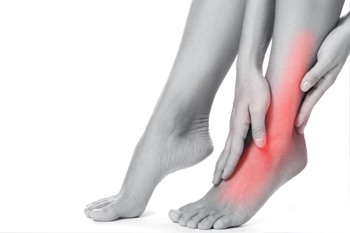
Hereditary multiple exostoses, or HME, is a rare genetic condition causing benign cartilage tumors to form near bone growth areas. It is often inherited, more commonly from the father. While it mostly affects males and is usually diagnosed before the age of 10, females can also carry and pass on the condition. These tumors, known as osteochondromas, can develop in various bones, such as in the feet. They can lead to discomfort, especially if the tumors press against nerves or surrounding tissues. Additionally, as the tumors grow, they can cause mechanical pain, specifically if they interfere with joint movement or cause bone deformities. Treatment typically involves surgical removal when symptoms arise or if there is a risk of cancerous changes. If you have foot pain, it is suggested that you schedule an appointment with a podiatrist. Despite its rarity, HME can significantly affect individuals' daily lives, emphasizing the importance of early diagnosis and appropriate management.
Some foot conditions may require additional professional care. If you have any concerns, contact one of our podiatrists of Waterbury Podiatry Consultants. Our doctors can provide the care you need to keep you pain-free and on your feet.
Rare Foot Conditions
The majority of foot conditions are common and can be treated by a podiatrist. Standard diagnostic procedures are generally used to identify specific conditions and treatment can be rendered. A podiatrist also treats rare foot conditions which can be difficult to diagnose and may need extra attention and care.
There are many rare foot conditions that can affect children. Some of these can include:
- Freiberg’s disease
- Kohler’s disease
- Maffucci syndrome
Freiberg’s disease - This can be seen as a deterioration and flattening of a metatarsal bone that exists in the ball of the foot. It typically affects pre-teen and teenage girls, but can affect anyone at any age. Symptoms that can accompany this can be swelling, stiffness, and the patient may limp.
Kohler’s disease - This often targets the bone in the arch of the foot and affects younger boys. It can lead to an interruption of the blood supply which ultimately can lead to bone deterioration. The patient may limp or experience tenderness, swelling, and redness.
Maffucci syndrome - This affects the long bones in a child’s foot leading to the development of abnormal bone lesions. They are benign growths and typically develop in early childhood and the bones may be susceptible to breaking.
A podiatrist can properly diagnose and treat all types of rare foot conditions. If your child is affected by any of these symptoms or conditions, please don’t hesitate to call our office so the correct treatment method can begin.
If you have any questions please feel free to contact our offices located in Waterbury and Southington, CT . We offer the newest diagnostic tools and technology to treat your foot and ankle needs.
